For the 2025 school year, there is 1 public preschool serving 255 students in Fairfield Comm School District.
Public Preschools in Fairfield Comm School District have a diversity score of 0.42, which is less than the Iowa public preschool average of 0.45.
Minority enrollment is 24% of the student body (majority Hispanic and Asian), which is less than the Iowa public preschool average of 27% (majority Hispanic).
Overview
This School District
This State (IA)
# Schools
4 Schools
474 Schools
# Students
1,457 Students
151,894 Students
# Teachers
101 Teachers
11,053 Teachers
Student : Teacher Ratio
14:1
14:1
District Rank
Fairfield Comm School District, which is ranked within the bottom 50% of all 325 school districts in Iowa (based off of combined math and reading proficiency testing data) for the 2021-2022 school year.
The school district's graduation rate of 85-89% has stayed relatively flat over five school years.
Overall District Rank
#218 out of 327 school districts
(Bottom 50%)
(Bottom 50%)
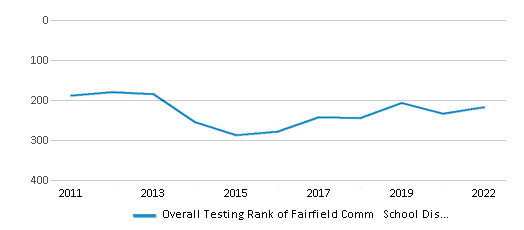
Math Test Scores (% Proficient)
58%
64%
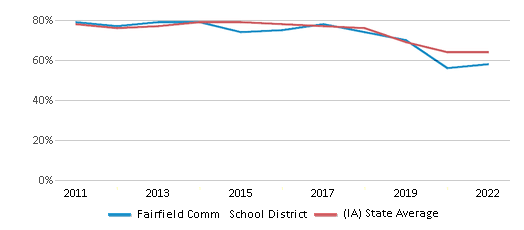
Reading/Language Arts Test Scores (% Proficient)
72%
70%
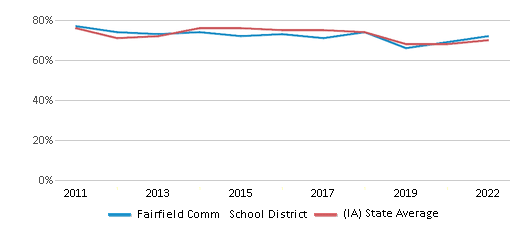
Science Test Scores (% Proficient)
61%
63%
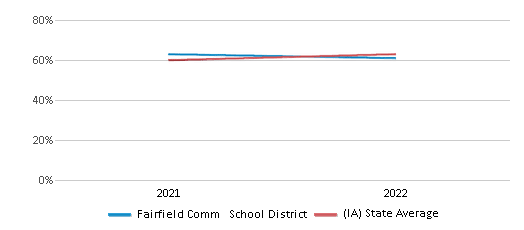
Graduation Rate
85-89%
90%
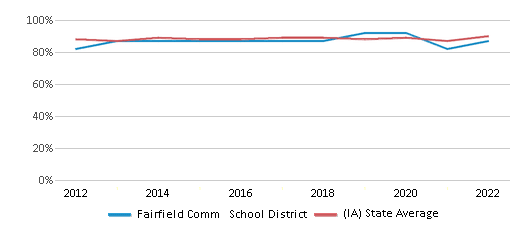
Students by Ethnicity:
Diversity Score
0.36
0.45
# American Indian Students
2 Students
532 Students
% American Indian Students
n/a
n/a
# Asian Students
68 Students
2,925 Students
% Asian Students
5%
2%
# Hispanic Students
109 Students
18,818 Students
% Hispanic Students
7%
13%
# Black Students
27 Students
9,688 Students
% Black Students
2%
6%
# White Students
1,162 Students
111,231 Students
% White Students
80%
73%
# Hawaiian Students
1 Student
1,189 Students
% Hawaiian Students
n/a
1%
# Two or more races Students
88 Students
7,501 Students
% of Two or more races Students
6%
5%
Students by Grade:
# Students in PK Grade:
45
23,036
# Students in K Grade:
110
25,738
# Students in 1st Grade:
100
22,613
# Students in 2nd Grade:
112
21,812
# Students in 3rd Grade:
108
20,001
# Students in 4th Grade:
119
18,600
# Students in 5th Grade:
97
14,277
# Students in 6th Grade:
106
5,389
# Students in 7th Grade:
103
67
# Students in 8th Grade:
112
108
# Students in 9th Grade:
116
31
# Students in 10th Grade:
115
54
# Students in 11th Grade:
97
71
# Students in 12th Grade:
117
97
# Ungraded Students:
-
-
District Revenue and Spending
The revenue/student of $17,673 is higher than the state median of $16,468. The school district revenue/student has grown by 9% over four school years.
The school district's spending/student of $15,577 is less than the state median of $16,042. The school district spending/student has grown by 9% over four school years.
Total Revenue
$26 MM
$8,262 MM
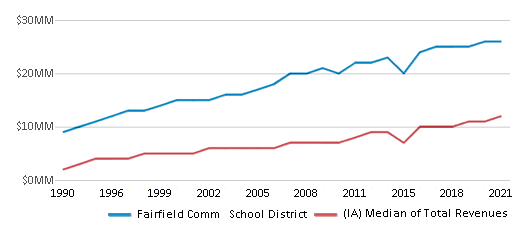
Spending
$23 MM
$8,048 MM
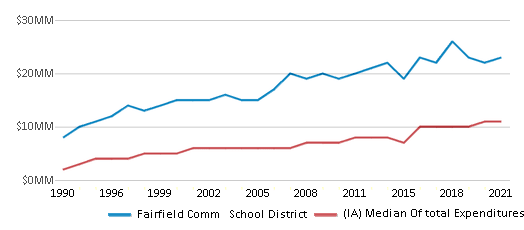
Revenue / Student
$17,673
$16,468
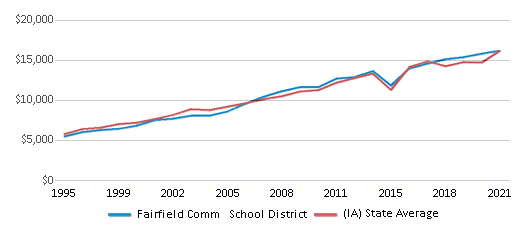
Spending / Student
$15,577
$16,042
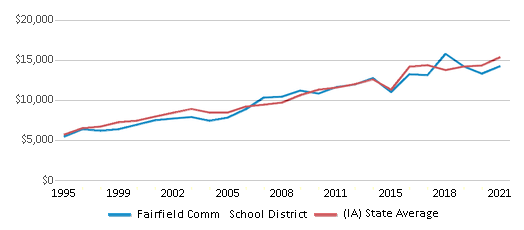
Best Fairfield Comm School District Public Preschools (2025)
School
(Math and Reading Proficiency)
(Math and Reading Proficiency)
Location
Grades
Students
Rank: #11.
Washington Elementary School
(Math: 85-89% | Reading: 80-84% )
Rank:
Rank:
9/
Top 20%10
406 East Madison Avenue
Fairfield, IA 52556
(641) 472-2110
Fairfield, IA 52556
(641) 472-2110
Grades: PK-1
| 255 students
Recent Articles

Year-Round Or Traditional Schedule?
Which is more appropriate for your child? A year-round attendance schedule or traditional schedule? We look at the pros and cons.

Why You Should Encourage Your Child to Join a Sports Team
Participating in team sports has a great many benefits for children, there is no doubt. In this article you will learn what those benefits are.

White Students are Now the Minority in U.S. Public Schools
Increasing birth rates among immigrant families from Asia and Central and South America, combined with lower birth rates among white families, means that for the first time in history, public school students in the United States are majority-minority. This shift in demographics poses difficulties for schools as they work to accommodate children of varying language abilities and socio-economic backgrounds.





